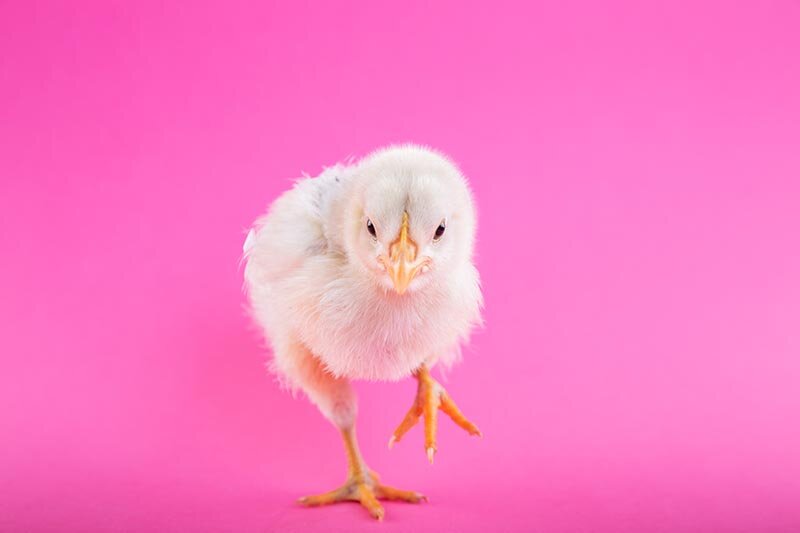Can You Hatch Eggs From The Grocery Store?
Just because the box says they’re unfertilized doesn’t mean they are.
By Jillian Pretzel
While most of us didn’t realize it was even possible to hatch eggs from a grocery store, kids have recently been making headlines hatching new pets from their would-be breakfast foods.
In February, 14-year-old William Atkins successfully hatched a duckling from an egg he’d purchased from the British supermarket chain, Waitrose, the Daily Mail reports. Then in April, a 9-year-old girl who’d been inspired by Atkins tried the same ruse, ending up with two baby quails and a duckling.
Dig deep into the internet and you’ll find more examples of people who’ve tried the same thing. There are even instructional blogs out there that can teach you how to successfully hatch a Trader Joe’s egg.
For 14-year-old Atkins, it was curiosity that led him to try the zany experiment.
“I got the idea after a family discussion about whether it would be possible to hatch a supermarket egg as they are not supposed to be fertilized,” he told the Daily Mail.
Atkins had long suspected it was possible to hatch eggs from the grocery store, and so he decided to finally see if he could make it happen. He first bought some quail eggs, sticking them an incubator he purchased off eBay for close to $50.
Nothing happened.
So he opted for hen and duck eggs next, and, to his surprise, after three days in the incubator, he noticed one had a beating heart.
“Watching it develop over the next three weeks was fascinating. I was over the moon when it finally pecked its way out,” he said.
The duckling emerged from its shell on its 28th day in the incubator, surprising both Atkins and his entire family.
“I was amazed when I saw William carrying boxes of eggs into his bedroom,” his dad said. “I confess I never thought he would actually produce a live duck.”
Atkins kept the duckling in his room for its first few weeks of life, bonding with the small, “absolutely adorable” little creature.
Depending on its sex, which he had not been able to determine, he decided to name it either Jeremy or Jemima. When it grew large enough, the duckling would be rehomed at a local farm where there is a pond and a flock of rescue ducks.
No more than two months later, 9-year-old Martha Rawstorne and her father, Tom, decided to replicate Atkins’ experiment. They bought two dozen hen eggs, 18 duck eggs, and three dozen quail eggs from an online grocery delivery service and from their local co-op to see if they could successfully hatch them in to baby birds.
Before popping them in the incubator, Tom already had his doubts. Some of the eggs had arrived cold, ostensibly having been refrigerated, which he knew could lower their chances of developing into chicks.
He was shocked when despite this, his daughter woke him up one morning two weeks later to announce that two of the quail eggs had hatched. One was yellow and the other a mottled brown.
Then, to both of their surprises, another egg hatched 10 days later, revealing a tiny, perfectly formed baby duckling.
While most eggs sold in grocery stores are advertised as being unfertilized, there are exceptions. In fact, guaranteeing that none of the eggs in a carton have been fertilized can be quite difficult.
A spokesperson for Clarence Court — the company that produced the duck eggs Atkins bought — told the Daily Mail that the odds of having fertilized eggs in their lots were “remarkably slim,” but clearly not impossible.
Their best guess is that their free-range ducks might have somehow come into contact with a wild male duck (known as a drake).
“It is possible that our flocks occasionally and accidentally have a drake among the ducks. The separation of males from females relies wholly upon the skill of a very few qualified people — the sexer — who examines the day-old duckling in the hatchery. Inevitably, the odd sexing error is made,” the company said.
But as Maurice Pitesky, a poultry expert and professor of veterinary medicine at the University of California in Davis, told National Geographic, sometimes the occasional male is intentionally added to a free-range poultry flock.
The reason? It can help “keep the flock healthy and behaving normally.”
So, if this is all in the name of healthier, happier birds, it’s probably fine to risk a few fertilized eggs...right?
According to the companies distributing the eggs it is.
“Fertilized eggs are harmless to eat, and without incubation would be totally indistinguishable from unfertilized eggs,” the Clarence Court spokesperson said.
Keeping your eggs in the fridge also further reduces their chances of hatching due to the cold temperatures.
Still concerned? The chicken experts at Backyard Chicken Coops, an online store selling poultry farming supplies, say there is one way to tell if your egg is fertilized.
“If you crack it open,” they write, “a fertile egg can be identified by a small white circle on the yolk that has a bullseye-like shape.” That circle is a cluster of cells that could have become a chicken — if it wasn’t already in your pan.














